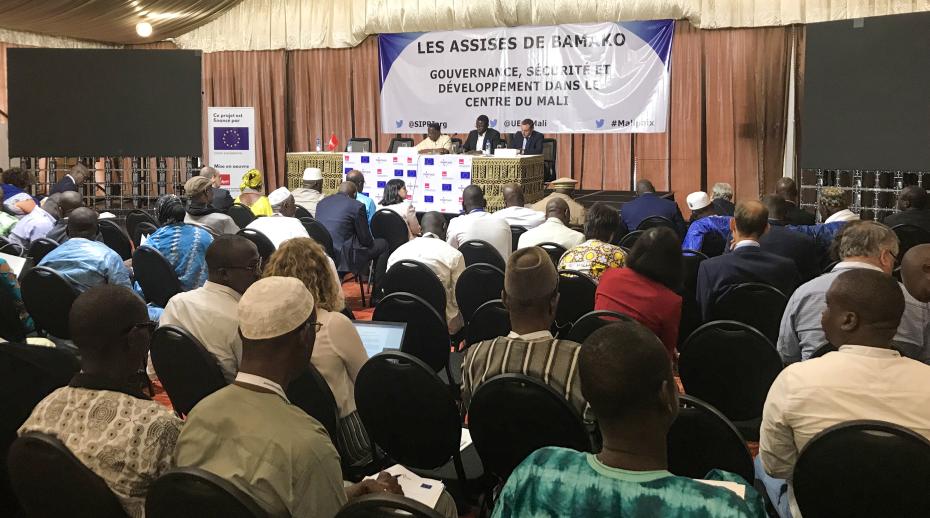
(Bamako, 26 September) SIPRI, together with the delegation of the European Union (EU) to Mali and Point Sud, convened a forum in Bamako on the topic ‘Governance, Security and Development in Central Mali’.
By bringing together researchers, local populations, national Malian authorities, international partners, academics, and non-governmental organizations, the forum aimed to initiate a dialogue about the crisis in two regions in central Mali: Ségou and Mopti. SIPRI’s partners in Burkina Faso, Chad and Niger were also invited to provide a regional perspective on Mali.
The forum opened with a film entitled ‘Akili sigui’ [The peaceful way], which was produced in cooperation with the Malian film-maker Soussaba Cissé and her team.
Click here to read more about the film or watch it in English or French.
During the forum, preliminary results were presented from research into the perceptions of local populations on governance, security and socio-economic conditions in central Mali. The first roundtable focused on the methodology and results of these quantitative and qualitative studies conducted during 2019. Other topics that were discussed included the agricultural conditions in central Mali, the roles and perceptions of local authorities in central Mali, and perceptions of the crisis from Mali’s neighbouring countries—Burkina Faso, Chad and Niger.
A SIPRI report that presents the research findings is forthcoming.
About the project
The three-year project ‘Mali-Centre for Security and Development’ is funded by the EU and implemented by SIPRI and its Malian partner, Point Sud. The project, which began in 2018, monitors governance, security and socio-economic development indicators in two regions in central Mali: Ségou and Mopti. The indicators are based on responses to questionnaires that are distributed every three months to a representative sample of the population. This bottom-up approach directly identifies the populations’ expectations and needs, and aims to provide evidence-based analysis to local and international stakeholders.